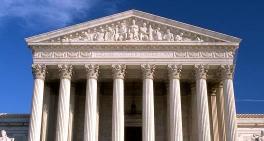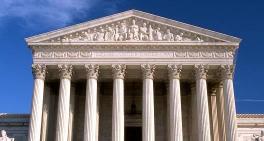Analysis: Outside groups may factor in Arkansas court race
Recent Cases
coming under fire from conservative groups that spent big on mailers and TV ads targeting her. Two years earlier, David Sterling was defeated in the race for the Republican attorney general nomination despite outside groups going after his rival in that race.
Now, the two are about to face off in what could wind up being another costly and heated fight for a state high court seat that could overshadow other races on the ballot this year. It could also turn into a proxy fight over the state's resumption of executions and the court's role in scaling back what had been an unprecedented plan to put eight men to death over an 11-day period.
Goodson quietly launched her campaign last week, with an adviser confirming that she planned to seek another term on the state's high court in the May judicial election. The same day, Sterling said he planned to challenge the incumbent jurist.
Neither candidate has laid out campaign arguments, but the past two election cycles offer some guide of what to expect. Goodson launched her bid for the chief justice seat ago vowing to represent "conservative values" on the court.
"The Supreme Court is supposed to represent your common sense, conservative values, to uphold the rule of law and to look out for your rights," Goodson said in a campaign video she posted in the fall of 2015.
A year earlier, Sterling was touting his conservative credentials in his campaign for attorney general and promised to use the office to protect Arkansans from "an overreaching federal government." Sterling lost in the runoff for the Republican nomination against Leslie Rutledge, who is now seeking re-election as the state's top attorney.
Related listings
-
Pennsylvania GOP take gerrymandering case to US high court
Recent Cases 01/24/2018Pennsylvania's top Republican lawmakers asked the U.S. Supreme Court on Thursday to stop an order by the state's highest court in a gerrymandering case brought by Democrats that threw out the boundaries of its 18 congressional districts and ordered t...
-
Brazilian court revives case against Olympian Ryan Lochte
Recent Cases 10/28/2017Over the summer, it appeared Ryan Lochte had been cleared of criminal charges in Brazil after he was accused of fabricating a story about getting robbed at gunpoint in Rio de Janeiro during the 2016 Olympics. On Friday, a decision made by an appeals ...
-
Abortion clinic seeks to sue Ohio over budget restrictions
Recent Cases 10/12/2017A Cleveland abortion clinic asked Ohio's high court on Tuesday to grant it legal standing to sue over abortion-related restrictions tucked into the state's 2013 budget bill.Preterm of Cleveland argued that the provisions impose added administrative a...

Car Accident Lawyers in New Rochelle, New York
If you have gotten in a car accident, it could seriously change your life. Whether the accident was caused by the other party’s fault or a fault of your own, you’ll want to to make sure that you are ready to prepare yourself for any cases that might follow.
Immediately following any type of car accident, it is important to take certain steps to ensure that the courts will treat you with respect and fairly. First, assess your mental and physical condition. Make sure right after the accident, you document any information regarding the accident and situation, it can be of great help later on.
You’ll want to make sure that you seek professional help for any medical conditions you may be experiencing. Do not wait to seek medical attention, you’ll want to make sure that you have documented evidence of the injury that was caused by the accident. The amount of treatment is also taken into consideration in every case.




